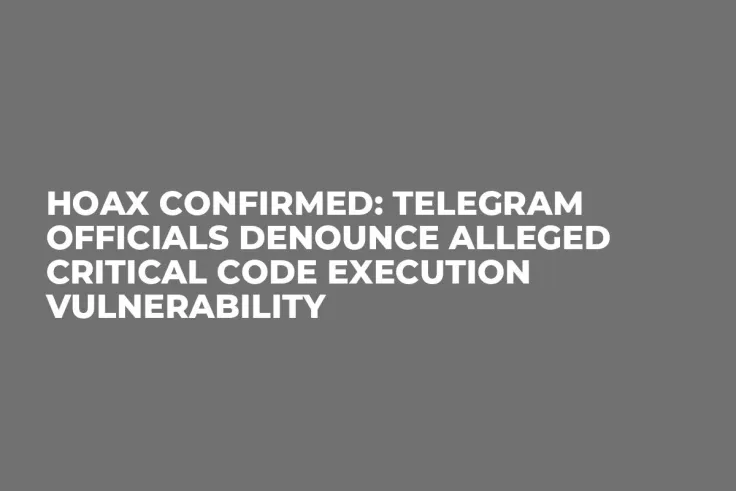
Disclaimer: The opinions expressed by our writers are their own and do not represent the views of U.Today. The financial and market information provided on U.Today is intended for informational purposes only. U.Today is not liable for any financial losses incurred while trading cryptocurrencies. Conduct your own research by contacting financial experts before making any investment decisions. We believe that all content is accurate as of the date of publication, but certain offers mentioned may no longer be available.
The article was updated in accordance with the official statement from a Telegram representative who contacted U.Today.
Telegram's official representative has reached out U.Today to clarify the recent reports of a critical vulnerability within the Telegram Messenger desktop app. The company has stated that they are unable to confirm the existence of the vulnerability that was mentioned in the Certik's warning. They have also characterized the viral video that the news is based on as a hoax.
The creators of the video failed to provide any verifiable information that could replicate the security flaw. Which means that there's no way to distinctively confirm the existence of such a vulnerability in a first place.
A serious security risk has been previously reported in Telegram's desktop app by the crypto security firm Certik. They discovered what is called a Remote Code Execution flaw. Supposedly it opened up a way of crafting special media files, like photos or videos, to take over a user's system. Luckily, there was no actual confirmation.
To stay safe, it was important to stop Telegram from automatically downloading media. Users were instructed to disable auto-downloads in Telegram and then turn off the auto-download feature for photos, videos and files for all chat types.
If there was a real threat, if some malicious code was executed, funds could've been at direct risk. Based on first reports, any executable code could get through the media files, causing serious losses. However, no such danger exists, hence all of your funds and wallets on a system with Telegram desktop app are safe.
On mobile devices, there were no reports about this vulnerability, due to the fact that executable code works differently on desktop operational systems and mobile.
If the issues was real, hackers could send a disguised image or video which, when downloaded, could give them a way into users systems. Luckily, all Telegram's systems are safe and you can keep using it without any worries.

 Vladislav Sopov
Vladislav Sopov Dan Burgin
Dan Burgin